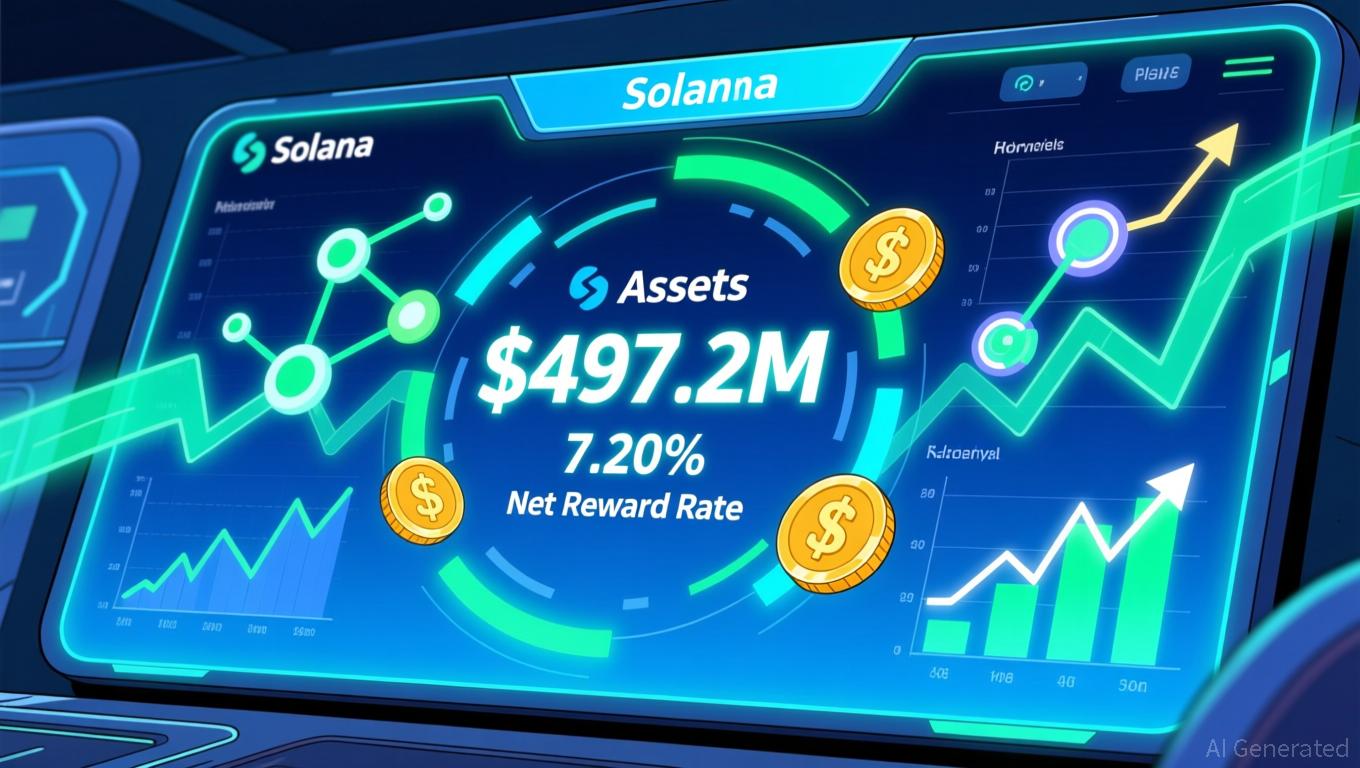U.S. Pursues Five-Year Prison Terms in Cryptocurrency Privacy Lawsuit, Challenging Developer Responsibility
- U.S. prosecutors seek 5-year sentences for Samourai Wallet co-founders over $237M crypto laundering via privacy tools. - Case highlights DOJ's strategy to hold crypto platform operators liable for criminal user activity, mirroring Tornado Cash legal battle. - Defense argues for reduced sentences citing cooperation, while prosecutors emphasize deterrence against privacy-focused financial innovation. - Outcome could set precedent for developer liability in DeFi, balancing privacy rights with regulatory com
U.S. authorities are seeking five-year prison terms for Keonne Rodriguez and William Lonergan Hill, the co-founders of Samourai Wallet—a cryptocurrency privacy platform accused of laundering more than $237 million in illegal proceeds from 2015 to 2024. Both men admitted guilt in July to running an unlicensed money transmitting business and are scheduled for sentencing on November 6 and 7, 2025, as reported in a
The charges claim that Samourai Wallet, which promoted itself as a privacy-centric

Defense lawyers, on the other hand, have called the prosecution’s sentencing request “excessively severe.” Rodriguez’s legal team asked for a sentence of one year and one day, while Hill’s attorneys requested credit for time already served, emphasizing that both men cooperated with investigators and accepted responsibility, according to
This case has been likened to the ongoing proceedings against Tornado Cash, a decentralized crypto mixer whose co-founder, Roman Storm, was found guilty in August of operating an unlicensed money transmitting business. Storm was acquitted of related money laundering and sanctions violations, a decision that drew criticism from privacy advocates who argue that developers should not be blamed for how users utilize their creations. The Samourai and Tornado Cash cases together illustrate the Justice Department’s approach of holding platform operators responsible for crimes committed through their services, even if users act independently.
Legal analysts caution that the results of these cases could shape how U.S. regulators interpret liability within decentralized finance (DeFi). Government filings indicate a belief that developers can be held accountable for criminal use of their platforms if they maintain operational control or influence through marketing—a stance that could discourage innovation in privacy-focused crypto projects. Samourai, which ceased operations after its founders’ arrests in April 2024, had advertised its coin-mixing as a method to “conceal transaction trails,” a claim now cited by prosecutors as proof of deliberate concealment.
The upcoming sentencing hearings in November will determine whether the court upholds the prosecution’s full recommendation or opts for the Probation Office’s lesser sentence. If the court sides with the government, it could signal stricter regulation for crypto privacy tools; a lighter sentence might encourage continued development in the field. As the digital asset industry navigates the balance between privacy and regulatory demands, these cases highlight the increasing friction between technological progress and government oversight.
Disclaimer: The content of this article solely reflects the author's opinion and does not represent the platform in any capacity. This article is not intended to serve as a reference for making investment decisions.
You may also like
Aster News Today: Major Investors Place Bold Wagers on ASTER's Surge While Questions About Sustainability Persist
- Whales accumulate ASTER tokens, pushing price toward $1.21 resistance amid mixed on-chain signals. - Derivatives volume jumps 34.47% to $1.89B, with open interest rising to $550.87M as traders speculate on breakout. - Technical analysts highlight a key ascending triangle pattern, but sustainability concerns linger due to stagnant adoption and low fees. - Market optimism grows with bullish tweets and 10% price surge, yet $2.14M in liquidations underscores volatility risks.

Bitcoin Latest Updates: While Cryptocurrencies Decline, Major Institutions Reinforce Their Commitment to Long-Term Prospects
- Bitwise CEO Hunter Horsley asserts crypto's long-term fundamentals remain strong despite recent market selloffs, citing ETF growth and regulatory progress. - Bitwise's $497M Solana Staking ETF (BSOL) dominates 98% of Solana ETF flows, offering 7.20% staking rewards and options trading since November. - U.S. regulators advance crypto-friendly measures including leveraged spot trading plans, while institutions like BlackRock expand digital asset offerings. - Despite Bitcoin's $95k dip and bearish technical

LUNA Rises 9.00% in a Day Following Debut of Namibian High-End Resort and Expansion of Mining Drilling Operations
- LUNA surged 9% in 24 hours but fell 79.24% annually amid mixed technical indicators. - Gondwana Collection Namibia launched the Luna Namib Collection, a luxury desert retreat opening July 2026 with private stargazing and tailored experiences. - NGEx Minerals began Phase 4 drilling at Lunahuasi, targeting 25,000 meters of high-grade copper, gold , and silver deposits with C$175M funding. - The "Luna" name gained cross-sector relevance in tourism and mining, prompting backtesting strategies to analyze pric
COAI's Latest Price Decline: An Overreaction by the Market and a Chance for Undervalued Investment
- COAI Index plunged 88% YTD in Nov 2025 amid AI/crypto AI sector selloff, driven by C3.ai's leadership turmoil, $116.8M losses, and regulatory ambiguity. - C3.ai's Q1 2025 revenue rose 21% to $87.2M, with 84% recurring subscription income, highlighting resilient business fundamentals despite unprofitability. - AI infrastructure stocks like Celestica (CLS) surged 5.78% as analysts raised price targets to $440, contrasting crypto AI's freefall and signaling market overcorrection. - Regulatory clarity on AI/
